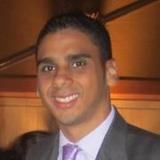Dr. Rafael Estevez, Plastic Surgeon In The Dominican Republic.
Medical tourism is growing rapidly. In this interview, Dr. Rafael Estevez talks about the current state of cosmetic medicine in Dominican Republic.
 Name: Rafael Ernesto E. Estevez, M.D.
Name: Rafael Ernesto E. Estevez, M.D.
Location: Santo Domingo, Dominican Republic
Website: doctorestevez.com
Can you tell us what is it like practicing cosmetic surgery in Dominican Republic in comparison with what you see in other countries?
The practice of plastic surgery in the Dominican Republic has risen as time passes by, and so have its standards of care. We now have state of the art facilities, where you can practice plastic surgery in a safe manner.
Dominican plastic surgeons have a steady presence in international meetings and forums, thus are aware of the current techniques in use in aesthetic plastic surgery worldwide. Those techniques have been applied in our patients. The fact that we can apply both American and European techniques, gives us an edge over some colleagues, as we have multiple ways of addressing the different situations that arise in our practice.
The growth of plastic surgery in Dominican Republic has come in hand with the growth of medical tourism. That’s because the costs of healthcare in our country is really low compared to more developed countries. That’s brought lots of traffic to our country from the USA and all around the world. Proper training, and low cost of medicine lets us offer aesthetic surgery at lower prices that in other places of the world, without increasing the risk rate of the surgeries, compared to those performed in Europe or USA.
What kind of certifications do physicians need in order to practice plastic surgery in Dominican Republic? How is cosmetic medicine regulated?
The practice of medicine in Dominican Republic is regulated by the Dominican Republic’s Ministry of Health. You have to be admitted to the Dominican College of Medicine.
As a plastic surgeon, you certify your credentials to the Dominican Society of Plastic, Reconstructive and Aesthetic Surgery. This society is affiliated with the Iberolatinoamerican Federation of Plastic, Reconstructive and Aesthetic Surgery (FILACP), chapter of the International Plastic, Reconstructive and Aesthetic Surgery Confederation (IPRAS).
In order to be admitted as a member of the Dominican Society of Plastic Surgery, you have to graduate from a plastic surgery residency recognized by IPRAS, with at least 2 years of general surgery training and 4 years of plastic surgery training. The Society then is responsible for watching over your continued medical education and your attachment to a code of ethics, in order to maintain your membership.
How does malpractice insurance and liability work in Dominican Republic? What typically happens when patients experience complications or are unhappy with results?
Medical malpractice is sanctioned in the Dominican Republic by various laws, including the Civil Code and General Health Law 42-01. If you by inobservance, negligence, and or lack of skill you do harm on a person, you are plausible of sanctions by the law.
However, most of the complaints come from patients with unhappy results or delayed healing situations, that managed with patient, and giving it the proper care, should end in a good result. Therefore, we believe that being straightforward and explain every step of the recovery process to your patients, you can really minimize the risk of being sued for situations that could be managed.
Where do you think will cosmetic surgery evolve? Will it be changed by technology?
Every aspect of our lives has been changed by technology. Aesthetic surgery is no exception. New liposuction technologies emerge every day. We see how there’s been a boom in non invasive rejuvenation procedures. As physicians, we have to make sure that all those substances do what they are supposed to do, without doing any harm, and to keep up with every new substance, we need constant capacitation.
We have enhance manufacturing processes in the fabrication of implants and medical devices, thus making them safer than ever. And that comes in hand with the diffusion of practice surgery software to manage your practice, EMR, prediction software, among others.
The plastic surgeon of the 21st century has to adapt to the changes of the world, or it will be left behind by those who do keep up, with the risk of behind displaced even by those who don’t have the right training to practice aesthetic plastic surgery procedures.
What advice would you give to other physicians based upon your experiences?
There are very well trained professionals all around the world, so you can’t judge a fellow colleague just because of the country where he practices. The real enemy is the merchants who do practice without proper training. So the recommendation is to participate in all the continued medical education programs (meetings, forums and so on) and to be vigilant that who performs plastic surgery, has the certification needed by the international societies, to do the procedures they’re doing.
About: Dr. Estevez is a Plastic, Reconstructive and Aesthetic Surgeon in the Dominican Republic. He runs his private practice in Centro Policlinico Nacional, in the eastern part of Santo Domingo, capital of the Dominican Republic; where he also serves as medical director of the facility. He’s also appointed as faculty physician of reconstructive surgery at Hospital Dario Contreras, in Santo Domingo.
This interview is part of a series of interviews of physicians running medical spas, laser clinics and cosmetic surgery centers. If you'd like to be interviewed, just contact us.